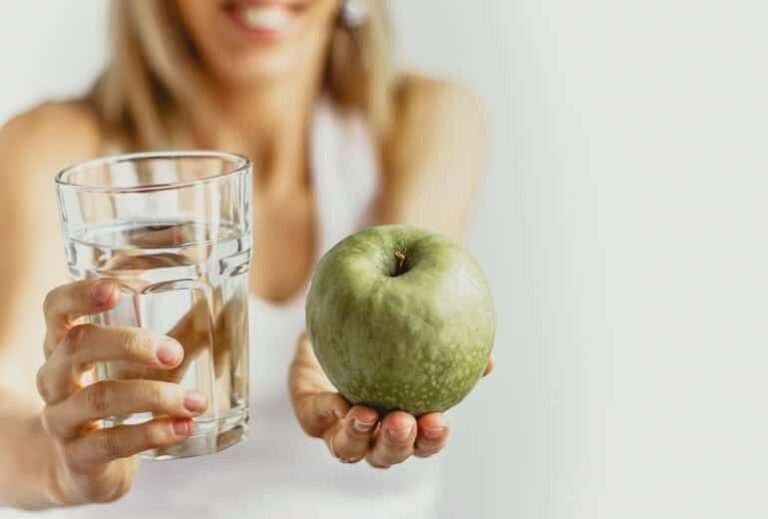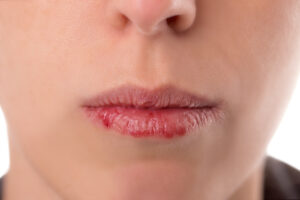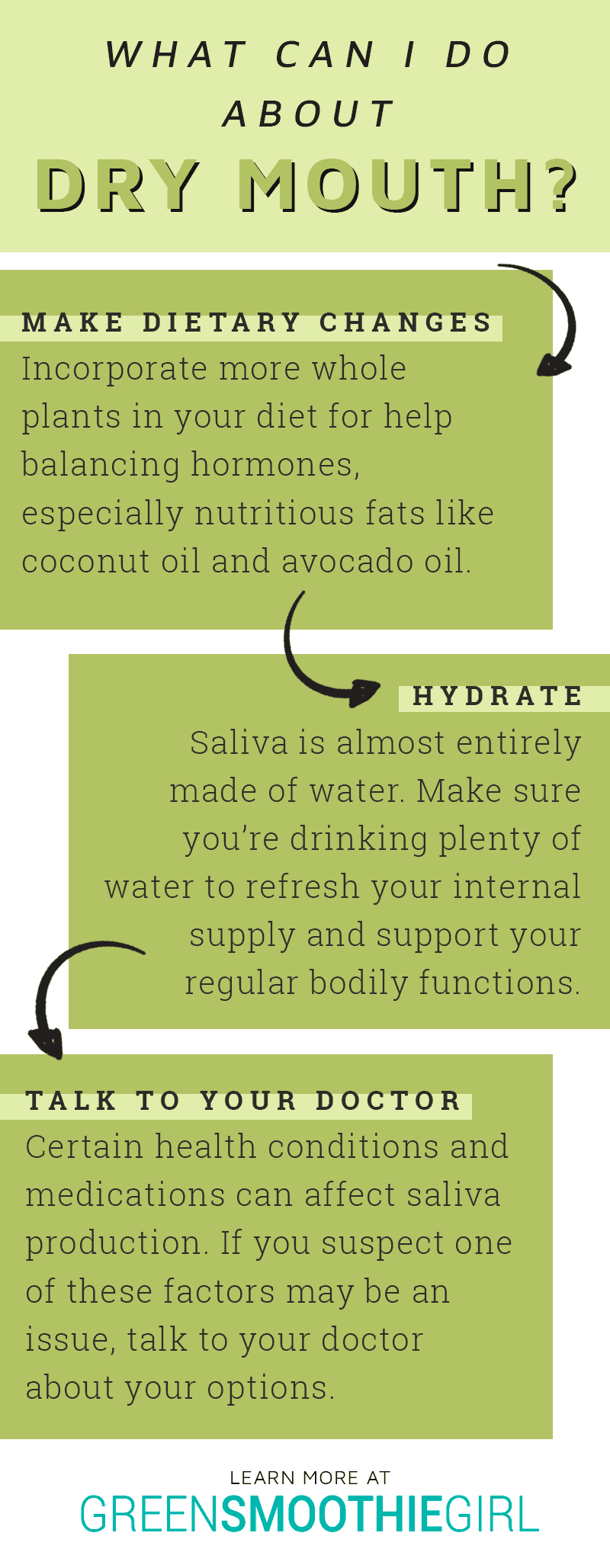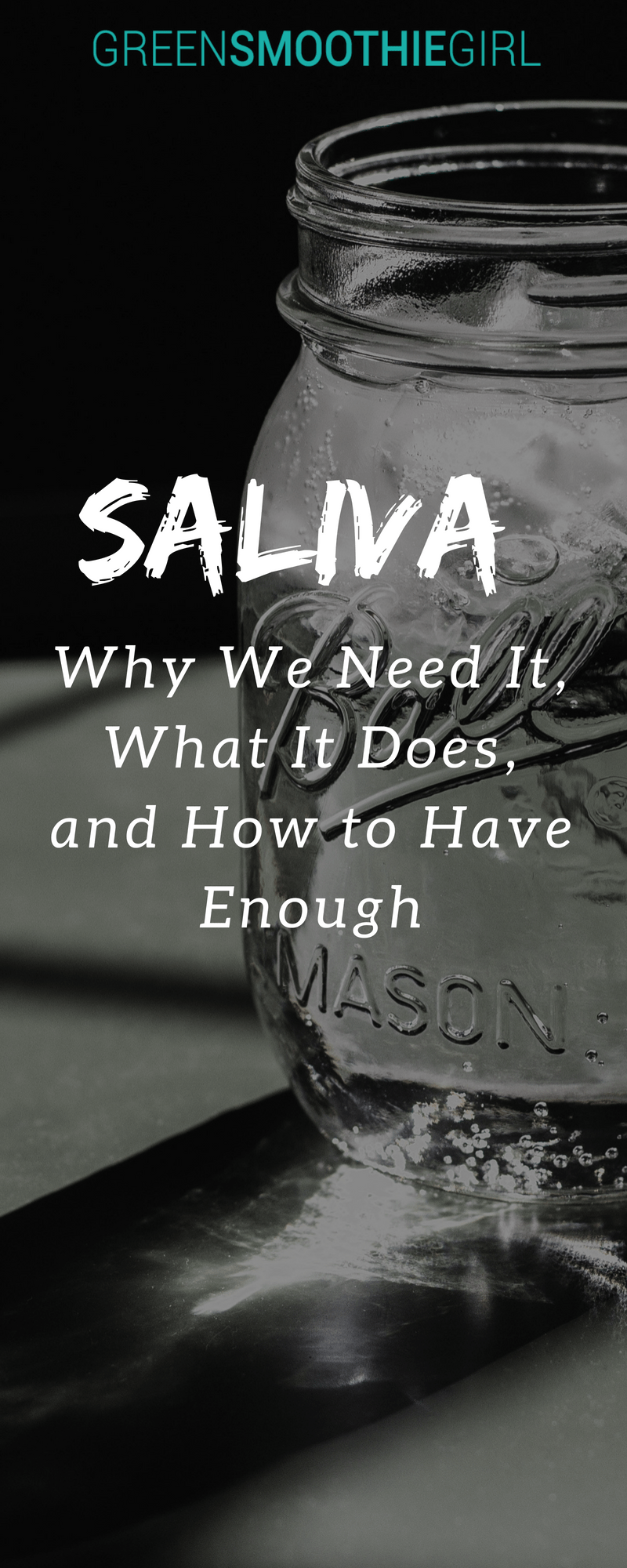Saliva: Why We Need It, What It Does, and How to Have Enough

If things are humming along smoothly, we don’t tend to notice the most basic aspects of how our bodies run; a well-oiled machine has no friction, as they say. It’s not until an ailment makes itself known that we realize how much our bodies quietly do for us behind the scenes. This is definitely the case when it comes to saliva.
Have you ever wondered about the role saliva plays in your mouth? Is it totally necessary for you to function? What is it actually good for? Every aspect of our bodies has a purpose, and saliva is vital for many important reasons, especially for digestion and preventing tooth decay. But before we get into its benefits—what is it, exactly?
What is Saliva?
Saliva is a clear liquid—consisting of mostly water, but also proteins, minerals, and enzymes—that is secreted by the salivary glands located inside of the cheeks, at the bottom of the mouth, and at the top near the front teeth. These glands secrete an average of two to four pints of saliva a day, half of which you breathe out while you sleep, according to sleep specialist Dr. Michael Breus, which is why it’s important to rehydrate first thing in the morning with a big glass of water.

Dry mouth is the result of a body that doesn’t produce enough saliva. It’s uncomfortable and can also lead to other health concerns.
Why Do We Need Saliva?
Lubrication and Saturation
A very simple reason is that we need it for lubrication and comfort. Imagine eating a dry piece of crusty bread with nothing to help the food make its way down your throat–it would scratch and hurt, and you might choke. Saliva helps you chew by saturating the food in your mouth and allowing you to swallow easily. It also lubricates the tongue to activate your taste buds; a dry tongue won’t be able to taste much.
Digestive Function
The production of saliva is critical for the health of our digestive system as well. Have you noticed that when you chew, the amount of saliva in your mouth increases? The chewing motion compresses the salivary glands and allows them to release saliva into your mouth. This serves two purposes: first, saliva production signals to the rest of your digestive system to get moving—essentially it’s saying, “Get ready, food is coming your way!” Second, the enzymes contained within the secretion help break down your food as the beginning of the digestion process; it will further break down in the stomach and small intestine, where the gastric juices will get to work.
Reduces Risk of Tooth Decay
In addition to its aid in eating and digestion, saliva helps keep teeth and gums clean by washing away food particles, and helps prevent xerostomia, otherwise known as dry mouth, which can cause swelling, discomfort, and bad breath. Germs love the environment of a dry mouth, and without saliva, food particles can stay on the tooth, feeding the bacteria that create acid that eats away at the enamel; thus, having enough saliva is essential for reducing the risk of tooth decay. For this reason, you should avoid alcohol-containing mouth rinses, which can dry out the mouth as well.
What if You’re Not Producing Enough Saliva?
Various factors can influence the amount of saliva the glands produce. Hormone imbalances, for instance, can disrupt production. To ensure you’re doing all you can to keep saliva levels normal, the following may help:
1. Make Dietary Changes

Enjoying fibrous foods in their raw state (like celery, apples, and carrots), can help stimulate saliva flow.
Incorporate more whole plants in your diet for help balancing hormones, especially nutritious fats like coconut oil and avocado oil, which are crucial for supporting hormone function. Enjoying fibrous foods in their raw state (like celery, apples, and carrots), can help stimulate saliva flow as well, as these foods require more chewing and so will help release the liquid from the glands.
Acidic foods will produce more saliva as well as spicier foods, but make sure to rinse your mouth with water after eating to avoid the risk of tooth decay, which can occur when acidic substances sit on the teeth for too long. Dr. Michelle Jorgensen advises that rinsing after acidic foods is better than brushing, because acid softens the enamel, which can then be brushed away.
2. Hydrate
As saliva is almost entirely made of water, you want to make sure you’re drinking plenty of water to refresh your internal supply and support your regular bodily functions.
3. Talk to Your Doctor
If you’re suffering from certain health conditions like diabetes and Parkinson’s–the disease may affect saliva production. Medications like antihistamines, diuretics, antidepressants and anti-anxiety pills, and various pain medicines can also lead to dry mouth–if you suspect one of these factors may be an issue, talk to your doctor about alternative therapies, or more natural ways to cope with your condition. You may be able to switch to a different medication that does not have saliva reduction as a side effect.
4. Try Some Safe Products
If you’re using traditional mouthwash with alcohol, it could be contributing to your problems. An alcohol-free alternative is a better choice. Or you can try an approved dry mouth spray to help lubricate and relieve dry mouth.
What if You’re Producing Too Much Saliva?
Although this is not a common problem, overproduction of saliva can happen if you have an overactive gland or another ailment is causing issues with your ability to swallow (a sore throat, for instance). This can be a side effect of a medication as well, so speak with your physician if excess saliva is affecting you.
Robyn Openshaw, MSW, is the bestselling author of The Green Smoothies Diet, 12 Steps to Whole Foods, and 2017’s #1 Amazon Bestseller and USA Today Bestseller, Vibe.
This article was reviewed and approved by Dr. Michelle Jorgensen, DDS, FAGD, TNC, and dental advisor for GreenSmoothieGirl.com. The information included here is not a replacement for professional diagnosis or treatment; please consult a holistic dental professional.
This article may contain affiliate links, which allows you to support our mission (as well as demonstrate market demand for safer products) without costing you extra.
Posted in: Dental Health


















